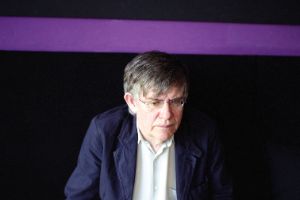Takj
Andrei Ujica and Friedrich Kittler
The Film of History
Introduced by Joachim Sartorius

Andrei Ujica © Armin Linke
The author and film-maker in conversation with the media scientist
Andrei Ujica was born in Romania in 1951 and has lived in Germany as a writer and filmmaker since 1981. His films are montages of real images which simultaneously remix what is visible in history. Ujica thereby reflects the relationship of political power and the media in Europe at the end of the cold war.
Videogramme of a Revolution (with Harun Farocki, 1992) captures the happenings of 21st December 1989, when remarkable things take place; the speech of Romanian dictator Ceausescu is interrupted – and the cameras are suddenly pointed at the sky. A staged display of power turns into pictures of the beginnings of a revolution which turns out to be a coup d’état. Out of the Present (1995) shows events on earth and in space between May 1991 and March 1992. During the ten months while the MIR crew orbit the earth, the Soviet Union breaks up. For his Autobiography of Nicolae Ceausescu, which was shown in Cannes in 2010, Ujica condensed propaganda films about the Romanian President into a three-hour panorama: “I use the character of the ideological dictator to investigate the historical sign under which the 20th century stood.”
Andrei Ujica has been Professor of Film at Staatliche Hochschule für Gestaltung Karlsruhe since 2001 and founding Director of the ZKM Film Institute since 2002.
Friedrich Kittler teaches Aesthetics and History of Media at the Humboldt University Berlin. Working with technological media, the linguist and cultural scientist has made numerous contributions to the theory and history of cultural technology, as well as on optical media and the effects of film on the written word’s storage monopoly.